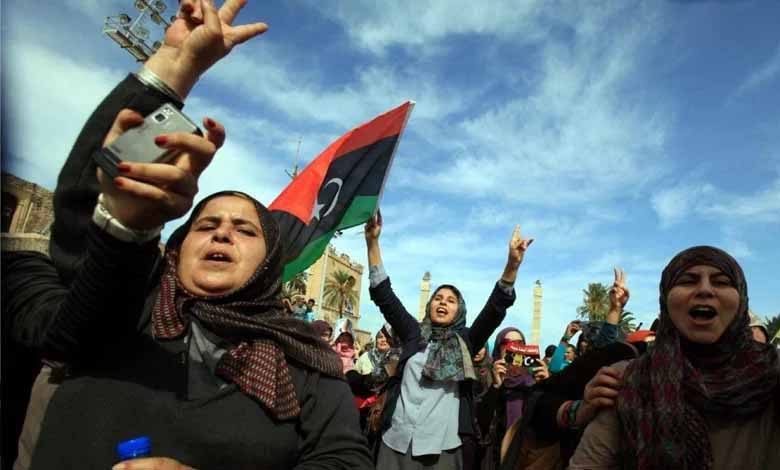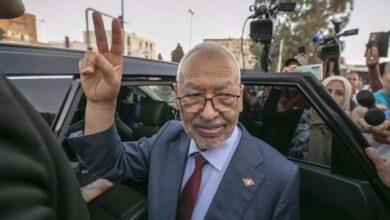10 years after the February revolution in Libya. Did you achieve its goals?

The tenth anniversary of the February 17 revolution comes to Libya as she faces a new transitional phase, amid challenges that observers believe are not much different from what she has faced since the fall of Colonel Muammar Gaddafi’s regime, but the people’s hopes are still pending to reach the desired stability.
The fall of the Gaddafi regime, according to Libyan journalist Al-Hussein Al-Maysouri, was inevitable after she was proven that the reforms he launched in 2005 were not the result of political maturity, but were linked to the arrival of Republican hawks to the White House headed by George Bush Jr., his invasion of Iraq, the arrest and execution of Saddam Hussein, and after he left Republicans, Democrats and President Barack Obama came. Gaddafi felt relaxed and lagged in the internal files, and did not respond to the demands of the Libyan people, and obstructed the Libya Tomorrow project, which made even his son Saif Gaddafi retire from political work at the time.
Speaking to “Sky News Arabia,” he added that when the February 17 revolution broke out and people went out peacefully to the streets and squares to demand change, “they were greeted with bullets, anti-aircraft, violence and bloodshed, as Colonel Gaddafi entered the country in the cycle of civil war and the flame of external interventions from which the country has suffered for 10 years until today.
Regarding the current political aspect, Al-Misouri does not expect that the new Presidential Council headed by Muhammad Al-Manfi and the government of national unity headed by Abdel-Hamid Dabaiba will bring about a major change regarding the crisis situation, and they will seek to “solidificate the situation as she is.”
He continued, “If we can manage to unify civil institutions such as the Central Bank and the Audit Office, solve the bread, electricity and liquidity crisis, provide fuel and facilitate the issuance of passports to citizens, this case would be a great success for them depending on the life of the Council and the government. Compared to the lifespan of parliament and government ”, it would also be a “ great achievement ” if they could organize the elections on time.
The most difficult task, according to Al-Masouri, which is almost “impossible” is “to unify the army” because there are “local forces and regional states” which do not want a regular army which puts end the control of “armed groups” over state institutions and extort officials, and limit interference from outside influence, adding : “Therefore, I think the unification rolls of the establishment military, the return of displaced persons, the dissolution of militias, the collection of weapons, and transitional justice will be frozen for the post-election period ”, if that happens.
The Libyan political analyst Ezz El-Din Aqeel believes that ”February 17th” had ”dire and horrific consequences”, as a result of which ”violence, chaos and corruption spread, and terrorism strengthened in the country that was torn apart, in which the social fabric was violated, armed groups and loose weapons spread through it and became the subject of waves of Illegal immigration increased the annoyance and hatred of European neighbors towards Libya”.
Akil added, in his speech to Sky News Arabia, that he had produced “a political elite that sold state sovereignty to foreign parties, and the foreign component in Libyan decision-making has grown high, while that the intelligence services were liberated from all countries from across the world to all over Libya, showing what the state was subjected to because of the organized looting. In the hands of armed groups in recent years, until they formed mafias with banks, through which they sell their funds to citizens, which means that the citizen can only get his money after that these groups separated from him.
He also pointed out that the country lost her public funds during these operations, in addition to international conspiracies regarding the freezing of funds. On the education record, schools have collapsed and thousands of children pushed by poverty to work, have driven up the illiteracy rate in a way the state had not previously monitored.
He pointed out that there are thousands of young people, some studies of which number around a million young people, who have had one of their limbs amputated or suffering from a handicap “because of the futile wars which took place in over the past ten years, and they will be a burden on themselves and on the state to take care of them”.
He also cited the projects that were blocked under the big project “Libya al-Ghad”, of which “the debris of unfinished buildings are still witnessing, and was struck by rust, as only demolish them and building them is useful, which will cost the State billions of dollars, in addition to compensating the companies that implement them” .
In 2010, the country adopted several urban projects, including housing, hospitals, roads and marinas, and Russian, Chinese, French, Korean, Turkish and Italian companies flocked to Libya to get their share of the projects, but everything stopped in 2011.
Economic affairs researcher Kamal Al-Mansouri said that “Libya is suffering an unprecedented economic recession”, highlighting the “great monetary crisis” caused by the division of management of the central bank, “which prevents the control of politics currency of the country while the dinar collapses and the Libyans are unable to meet their daily needs.
Al-Mansouri believes that “the economic plan, which was implemented in his first phase recently by adjusting the exchange rate, has not changed the living conditions of citizens much, as high prices continue and banks are deprived of liquidity, in addition to the persistent gap in the dollar’s exchange rate on the black market “.
”No plan can achieve success without achieving political stability, by unifying official institutions and ending their division, and there is no opportunity for foreign investors to return now, because this requires providing a security environment that encourages foreign companies to return”, Al-Mansouri said.
In Tripoli, preparations were in full swing to celebrate the tenth anniversary of the revolution, as Libyans spoke on social media of seeing “the same faces” that celebrated “Al-Fateh Day” during Gaddafi’s time, among those currently in “today’s celebrations”.
And Libyan political analyst Yaroub Al-Badrawi says anyone can disagree whether they praise or slander them in their dealings with February 17, because everyone sees things from the angle in which they are located.
And he continues : What we disagree about and consider in vain is celebration, for what joy in a country awaits news of the opening of roads between their cities, the exchange of prisoners release, and the transfer of funds to buy a vaccine against the emerging corona virus.












